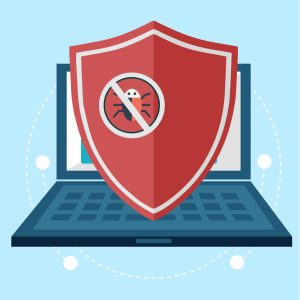Understanding the role of antivirus protection
Antivirus software is designed to detect, block, and remove malicious software from computers and other digital devices. As cyber threats continue to evolve, antivirus programs have become a vital part of protecting personal and professional data. These programs act as the first line of defense against various forms of malware, ensuring that systems remain safe, secure, and operational.
Common types of digital threats
Viruses and worms
A computer virus is a malicious program that attaches itself to legitimate software and spreads when the infected program is executed. Worms, on the other hand, can spread across networks without user action. Both can damage files, slow down systems, or open doors to more serious threats.
Trojans and spyware
Trojans disguise themselves as harmless software but create backdoors for hackers to control a device remotely. Spyware silently monitors user activity, collecting sensitive data such as passwords or banking details without consent.
Ransomware
Ransomware is one of the most dangerous forms of malware. It locks access to a user’s files or entire system and demands a ransom for restoration. Even if the ransom is paid, there is no guarantee that access will be returned.
Key benefits of installing antivirus software
Real-time threat detection
Antivirus software continuously scans files and activities for suspicious behavior. When a threat is detected, the program either isolates it automatically or alerts the user to take action. This real-time monitoring ensures immediate responses to potential dangers.
Protection against data loss
Cyberattacks can lead to the loss or corruption of valuable data. Antivirus programs prevent unauthorized access to files and block attempts to delete or encrypt data. For individuals and businesses, this means protecting personal documents, financial records, and sensitive client information.
Safe web browsing and email filtering
Modern antivirus solutions include web protection tools that block access to malicious websites, phishing scams, and dangerous downloads. Many also scan email attachments and links, reducing the risk of falling victim to online fraud or identity theft.
Improved system performance
Some viruses use a device’s resources for hidden tasks such as sending spam emails or mining cryptocurrency. This slows down the system and reduces efficiency. By removing these threats, antivirus software helps maintain smooth performance and responsiveness.
Choosing the right antivirus solution
Not all antivirus programs offer the same level of protection. Users should consider the features, update frequency, and support provided by the software. Many trusted antivirus providers offer both free and premium versions, with advanced options like firewalls, parental controls, and secure browsing included in paid plans.
The role of updates and maintenance
Installing antivirus software is not enough if it is not regularly updated. Cybercriminals constantly develop new threats, and antivirus companies release updates to combat them. Keeping your antivirus program up to date ensures it can recognize and neutralize the latest forms of malware.
Final thoughts on digital safety
In today’s digital world, installing antivirus software is no longer optional—it is essential. Whether you are a student, a business owner, or an everyday internet user, antivirus protection safeguards your data, your privacy, and your peace of mind. With the growing number of online threats, a reliable antivirus is a smart and necessary investment in digital safety.


